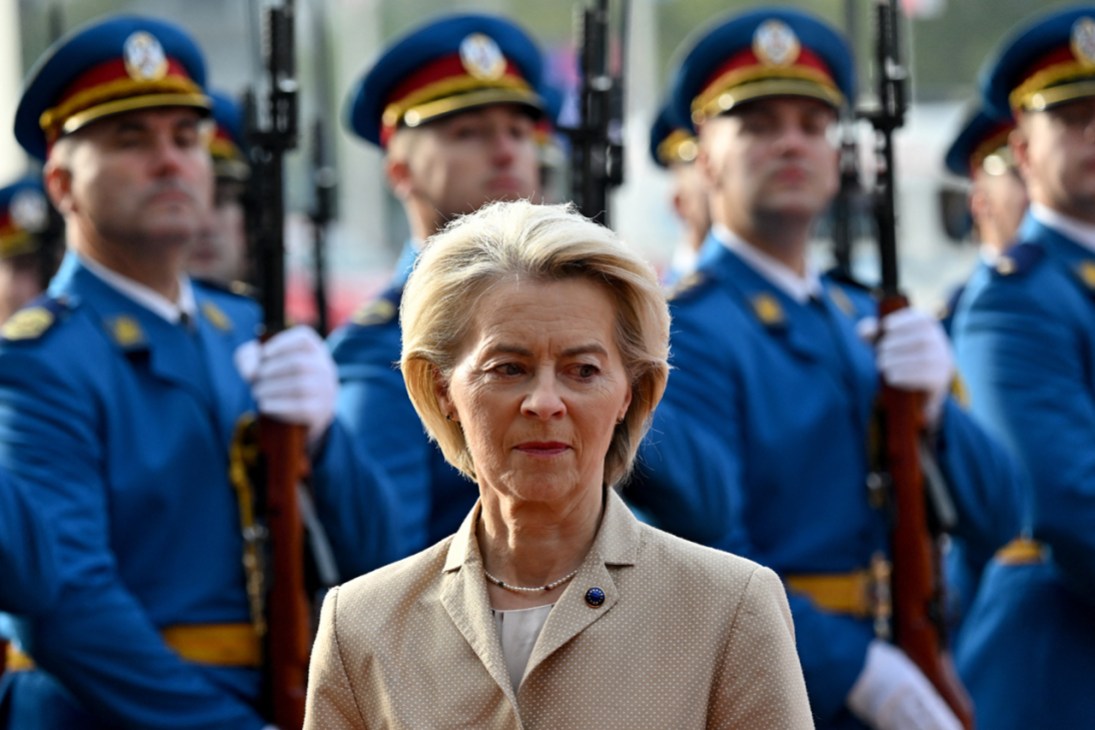The idea of EU membership for the Western Balkans has run aground
Examining recent and current events, you would be forgiven for thinking that the EU was pursuing expansion in the Western Balkans. On the surface, things seem to be moving in the right direction, from the recent tour of the region by the European Commission president, Ursula von der Leyen, to this week’s high-level Berlin Process Summit of Western Balkan leaders in London. But haven’t we heard all this before?
Two of the region’s six nations, Montenegro and Albania, appear close to joining the EU. But other countries are in troubled waters: Serbia has anchored mid-voyage; North Macedonia is struggling to leave port; Bosnia and Herzegovina must make its ship seaworthy; and Kosovo is landlocked.
On matters of EU enlargement, Brussels has been leading these nations up the garden path for decades. It is a misguided strategy – if indeed it has been a strategy at all – that has damaged the EU’s image in the region and caused people in Western Balkan countries to lose faith in the European project.

These young democracies need help and encouragement from Brussels to enact reforms, particularly concerning the rule of law, corruption and media freedom. But they need to know that there is a genuine chance of EU membership at the end of the process. All the available evidence from the past two decades suggests that this is not a particularly safe bet.
EU member states asserted that “the future of the Balkans is within the European Union” at the Thessaloniki Declaration in 2003. Since then, only Croatia has completed the accession process. For the other countries in the region, there has been little more than frustration as the EU moved the goalposts or placed fresh obstacles in the path of would-be member states.
No country has made a more dramatic effort than North Macedonia. In 2019 it took the radical step of changing its name from plain old Macedonia to resolve a daft but damaging dispute with Greece. The prime minister who promoted the new moniker, Zoran Zaev, persuaded a reluctant electorate to vote for a name change on the promise of unblocking Nato and EU membership. The military alliance swiftly made good on that commitment. The EU, however, allowed Bulgaria to veto the process by raising an even dafter dispute over arcane identity issues. During Von der Leyen’s brief stop in Skopje last week, she took the usual Brussels line, telling North Macedonia that “the ball is in your court”. In other words, the EU is not going to lift a finger to help.
In Serbia, support for EU membership has hit an all-time low of 33 per cent. This is partly the consequence of Belgrade’s own equivocal attitude towards Brussels – and the West – under the country’s president, Aleksandar Vučić. But it also reflects the EU’s mercurial behaviour, dangling the carrot of a clear path to accession only for it to be snatched away when former European Commission president Jean-Claude Juncker declared that there would be “no further [EU] enlargement”. Serbia’s accession momentum never recovered.
These are the most egregious examples of Brussels letting the Balkans down. Despite Von der Leyen’s cheer last week that “Montenegro can do it” and join the EU by 2028, there are plenty of reasons to be sceptical. Likewise, Albania should beware of her tepid comment that “we like [your] ambition” of completing membership negotiations by 2027. If the past two decades have demonstrated anything, it is that only a landlubber would expect smooth sailing from the Western Balkans to Brussels.
Guy de Launey is Monocle’s Ljubljana correspondent. For more opinion, analysis and insight, subscribe to Monocle today. Further reading? Click here to see how Serbia’s foreign minister, Marko Djuric, could bring unity to the Balkans.



